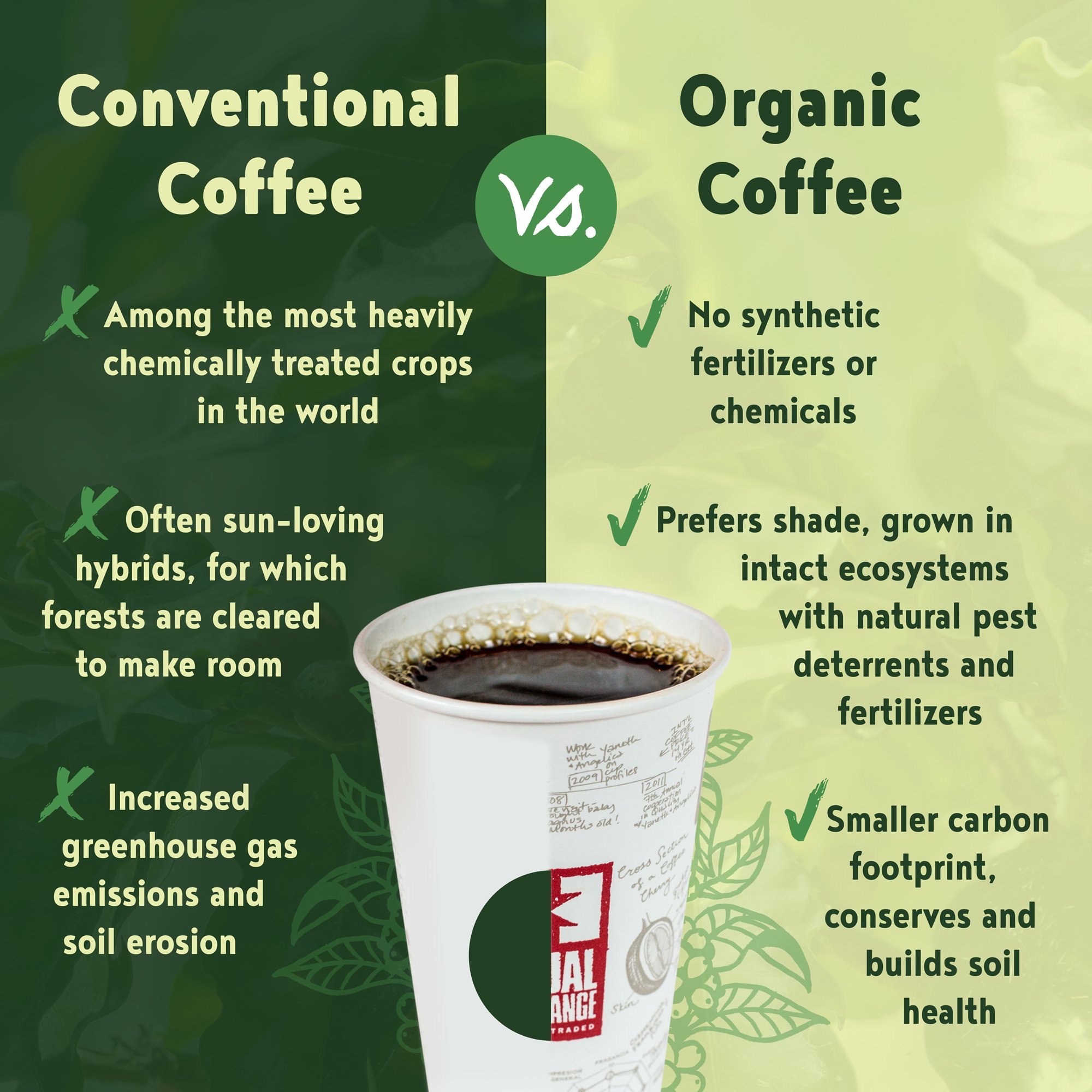Blog
What is the Difference Between Organic Coffee and Regular Coffee?
Coffee is a globally loved drink enjoyed by millions worldwide. Made of coffee beans, water and brewing methods it provides stimulating effects while its aroma fills the room as it brews. Although many prefer regular varieties for its stimulating effects, others might opt for organic varieties due to concerns over chemical exposure – this article will shed some light on this difference between organic and regular coffee.
Conventional coffee farming can have a devastating impact on the environment, with chemicals seeping into bodies of water and killing wildlife. Organic coffee offers an ideal solution as it is grown with less chemicals – helping both planet and human health! Furthermore, organic foods also provide healthier choices for those allergic to synthetic pesticides or herbicides.
Organic coffee does not contain any artificial chemical substances and does not use synthetic pesticides or herbicides during its growth process, leaving both beans and soil free of potentially hazardous residues and contaminants. Furthermore, organic farmers take extra steps to use only natural or organic fertilizers that protect soil from dangerous chemicals while adding nutritional value to it.
Organic coffee production does not expose coffee plants to ionizing radiation or sewage sludge and uses environmentally and socially responsible practices during cultivation – such as not polluting nearby rivers and lakes and not using genetically modified organisms – while it must meet specific standards to be certified as organic by the USDA.
Equal Exchange partners with co-ops in South America that cultivate coffee under the canopy of forest trees. This provides shelter to native plants and animals while also maintaining soil fertility and unique regional ecosystems, making farms more resilient in response to climate change. Other farms may clear forests to allow more direct sunlight; this only degrades soil health while exposing crops to harsh pesticides that will eventually make their way into waterways.
At its core, organic coffee only guarantees that beans and soil are free from any harmful residues; it does not guarantee healthiness for humans as research has not revealed any difference between organic and non-organic coffee in terms of its effects. To make sure your coffee truly organic, purchase it from a reliable source with Quality Assurance, Fair Trade or Smithsonian Institution Organic certifications.
Organic coffee offers similar taste and experience as traditional varieties, although some believe there to be noticeable differences. Organic purchasing may be worth your while if your health concerns include supporting ethical farming practices while helping the planet – if this isn’t top of mind for you though, don’t feel pressured into purchasing organic if this doesn’t resonate. Otherwise enjoy your regular coffee choice!




